 Acharya Mahapragya in his disourse on Sambodhi book said that happiness don't exist in materialistic consumption. We have limited ourself to the materialistic happiness. If we able to extract the inner happiness through spirituality, all materiality will be not more than a momentary drop of water before it Acharya Mahapragya
Acharya Mahapragya in his disourse on Sambodhi book said that happiness don't exist in materialistic consumption. We have limited ourself to the materialistic happiness. If we able to extract the inner happiness through spirituality, all materiality will be not more than a momentary drop of water before it Acharya Mahapragya
HN4U Online Editions of his Books in English are in text format.
Click to read:
A Handbook Of Preksha Meditation For The Trainers
Posted on: 15.08.2008
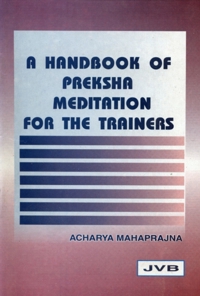
This Handbook of Preksha Meditation is a small guideline showing examples of schedules from the system of Preksha Meditation.
Abstract Thinking
Posted on: 15.08.2008

A man's life-style is conditioned by his thinking, which also forms the basis of his physical constitution, his method of working and the evolution of his personality. He becomes what he desires to be. His disposition, morality and conduct are also influenced by his thought. According to the celebrated scientist, Carl Simontone, the impact of positive thinking is astounding. It is, therefore, most desirable...
Acharanga Bhasyam
Posted on: 15.08.2008

Ecstasy is not a subject of articulation for a gardener who sees his garden full of trees and plants laden with verdure, flowers and fruits, or for an artist who sees his idea getting form on the canvas, or for a visionary who sees his dreams getting realized, through his own efforts. For a long time, I had been visualizing that the critical editing of the Jain scriptures be undertaken and the laborious moments...
Anekant: Reflections And Clarifications
Posted on: 15.08.2008
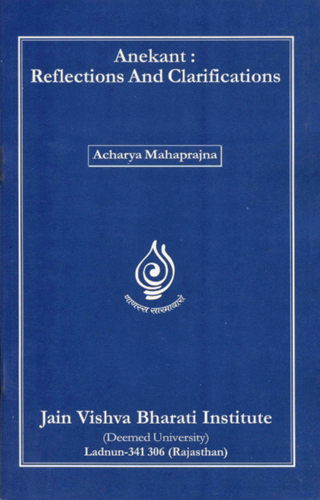
This little publication consists of two learned papers, one authored by Professor Daya Krishna, a modern philosopher thinker of high eminence and the other by Acharya Mahāprajña, a saint philosopher and head of the Terapanth sect of Jainism, credited with an encyclopaedic knowledge on Jainism. Professor Daya Krishna, in his paper, 'How Anekāntika is Anekānta 'appearing in the Journal of Indian Council of...
Anekant: Views And Issues
Posted on: 15.08.2008
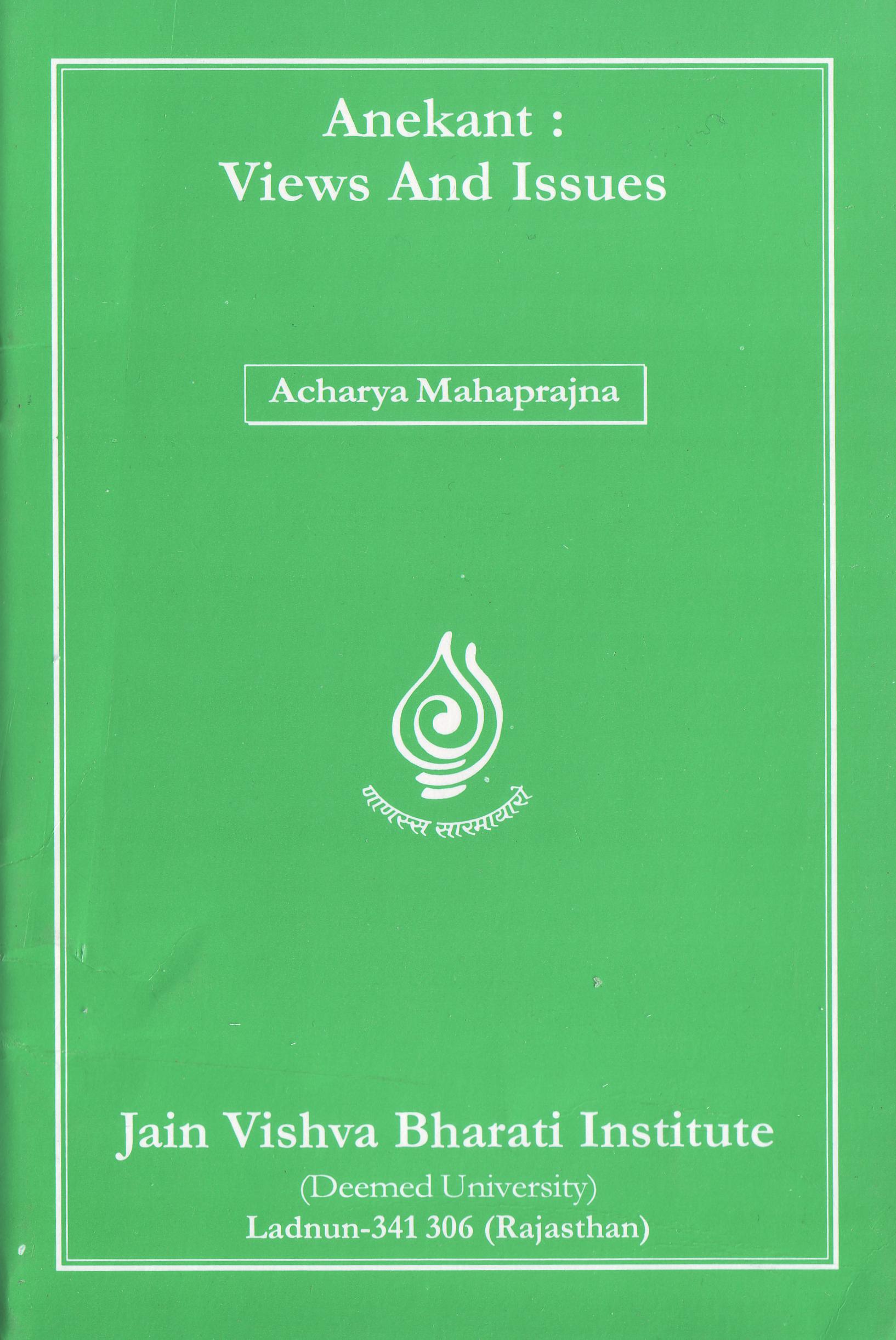
The monograph comprises two articles, viz, Anekānta: The Philosophy of Non-absolutism and The Axioms of Non-absolutism, both written by Ācārya Mahāprajña. The articles are written with axiomatical focus and indeed, with an original thinking in which a thorough investigation on Anekant is vividly reflected.
Anekanta: Philosophy of Co-existence
Posted on: 15.08.2008

Reality and Non-reality has been the subject of discussion from ancient times. During the Philosophical era, this matter was discussed deeply and critically. The discussion is still going on. Some philosophers consider reality as eternal and transcendental. Some believe it as transitory. Jain philosophy considers this subject with the perspective of Anekānta. According to it, there is no contradiction between...
Anekanta: The Third Eye
Posted on: 15.08.2008
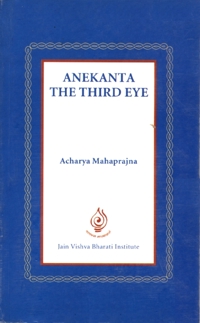
Acharya Mahaprajna writes in Hindi (and Sanskrit) with great clarity. His sentences are short and his style direct... he only suggests, he never forces his view. He may assert his belief, but his language is conscious of relativity even in expression. He treads on ideas and counter ideas with the sensitivity of a classic Jaina monk...
Arham
Posted on: 15.08.2008
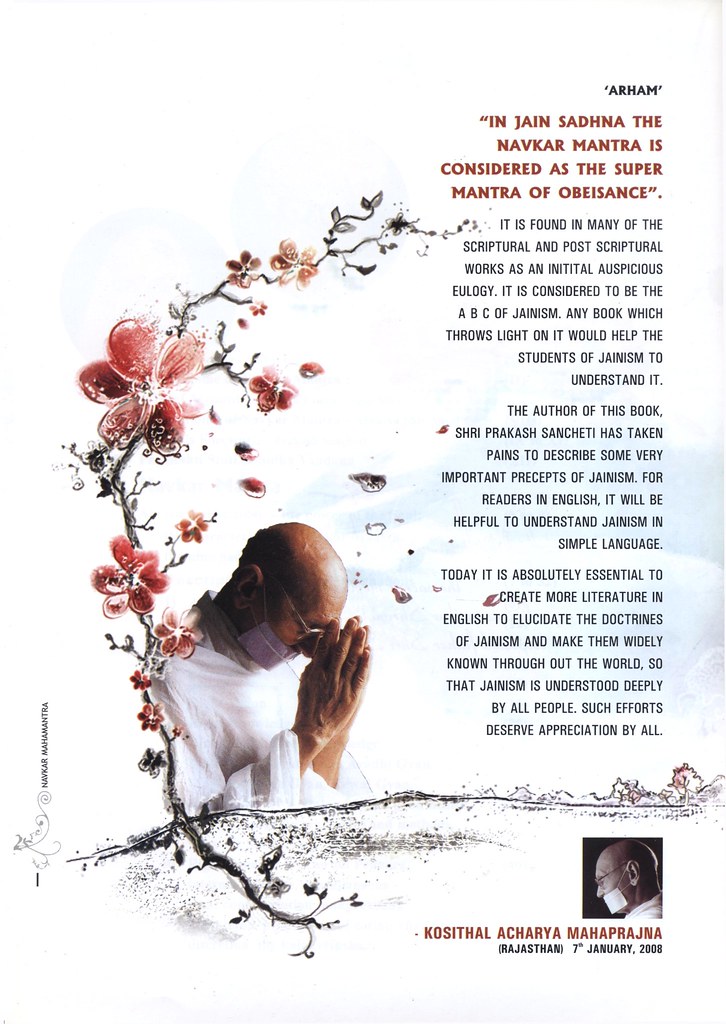 Page I, Text: In Jain Sadhna the Navkar Mantra is considered as the super mantra of obeisance. It is found in many of the scriptural and post scriptural works as an initital auspicious eulogy. It is considered to be the ABC of Jainism. Any book which throws light on it would help the students of Jainism to understand it. The author of this book, Shri Prakash Sancheti has taken pains to describe some very...
Page I, Text: In Jain Sadhna the Navkar Mantra is considered as the super mantra of obeisance. It is found in many of the scriptural and post scriptural works as an initital auspicious eulogy. It is considered to be the ABC of Jainism. Any book which throws light on it would help the students of Jainism to understand it. The author of this book, Shri Prakash Sancheti has taken pains to describe some very... Economics Of Mahavira
Posted on: 15.08.2008
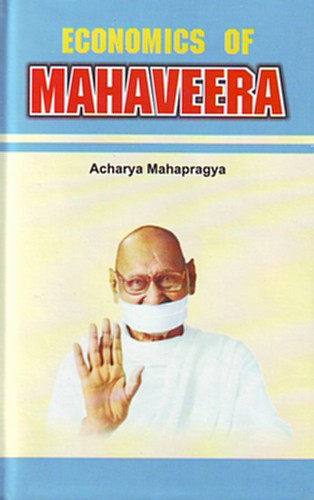
This concise but informative volume outlines and delineates some of the basic teachings of Mahavira as are relevant to the real understanding of economics. Economics is the science of economic prosperity and the limitation of wealth is the science of peace.
Economics Of Non-violence
Posted on: 15.08.2008

The two words - "violence" and "possessiveness" seemingly connote two different meanings, but their ultimate significance revolves round the same axis. For, "possessiveness" plays a vital role in giving birth to "violence". Similarly, "non-violence" and "non-possessiveness" may appear to have different verbal meanings, but essentially both are concomitant, the non-possessiveness being the cause and the...
I And Mine
Posted on: 15.08.2008

The relation entailed in the expression 'I and my mind' throws up many ideas.
Jeevan Vigyan: The Science of Living
Posted on: 15.08.2008

Education philosophers, whatever their Persuasions and approaches are, all agreed that the main aim of education is the all-round development - mental, physical, moral - of the learner. In actual practice, if not in theory, it is seen that one vital aspect, the attitudinal, or the emotional is usually ignored, in a world full of acute stress and tension, education must, along with other things, be a means of...
Mahavira's Scripture Of Health
Posted on: 15.08.2008

The question of health is related to life. It is not the question that concerns any particular community or sect. For Lord Mahavira, the soul was of the highest importance while the body was of secondary importance. The body which created obstacle in the upliftment of the soul is worthless. The chetana or consciousness which rounds the ahimsa from the beginning till the end can attribute value to that health...
Mind Beyond Mind
Posted on: 15.08.2008
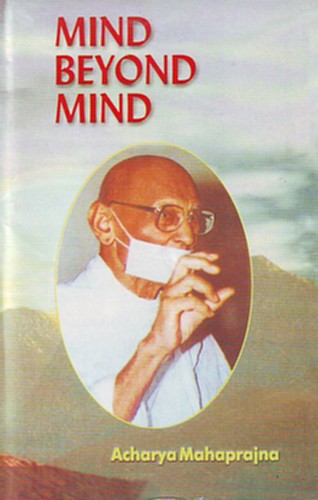
For thousands of years the human mind has been a controversial subject and it is likely to be so in the future also for those who try to control it. However, the mind ceases to be a problem for those who are capable of entering into the self. Those given to spiritual sadhana view the mind and its problems in a different light. For them the mind is only an instrument. There is no use quarrelling with the...
New Man: New World
Posted on: 15.08.2008

Economic development and surfeit of consumer goods cannot reduce violence and crime. On the contrary, they can be instrumental in increasing them. The future of humanity lies in a balanced development of labour, wealth and self-restraint. Labour and wealth represent the basic aspects of life. On the other hand, self-restraint represents life's spiritual aspect. A mentally steady life is impossible to conceive...
Non-Violence And Its Many Facets
Posted on: 15.08.2008
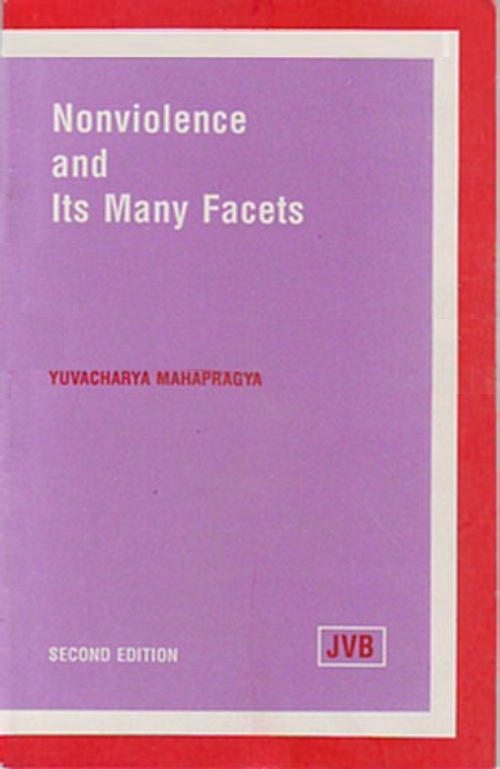
The search for spiritual non-violence is not possible through scientific instruments or history or even genetics. One has to investigate one's soul in order to know one's identity, one's true self. It will reveal to the investigator all those dispositions within him that encourage violence, he will then try to find out whether those dispositions can be neutralized. Such an analysis of the inner self is a...
Philosophical Foundations Of Jainism (An Introduction)
Posted on: 15.08.2008
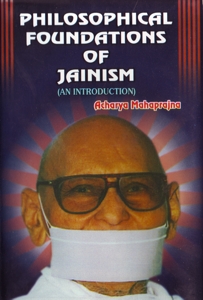
The search for origin of 'Bhāratīya Vidyā', ancient India's tradition of knowledge and learning, takes one to the age, which is much earlier than the period, believed by some scholars as the dividing line between Pre- Āryan and Post- Āryan periods of Indian history. However, when we look at the literature and the other sources of history of the Post- Āryan period, it can be placed into two...
Preksa Dhyana - Theory And Practice
Posted on: 15.08.2008
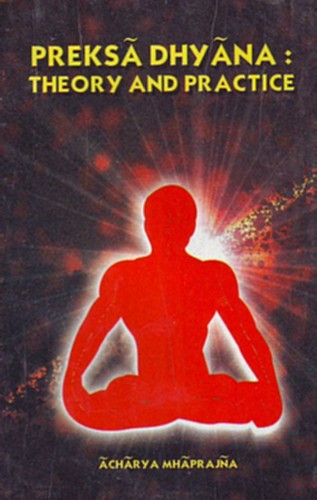
In publishing this book, it is hoped to bring to the reader, in simple language, some of the truths, already known to the ancient philosopher, and not known to modern science. What is Preksa Dhyana? Preksa-dhyana is a technique of meditation for attitudinal change, behavioural modification and integrated development of personality. It is based on the wisdom of ancient philosophy and has been formulated in terms...
Preksha Dhyana: Basic Principles
Posted on: 15.08.2008
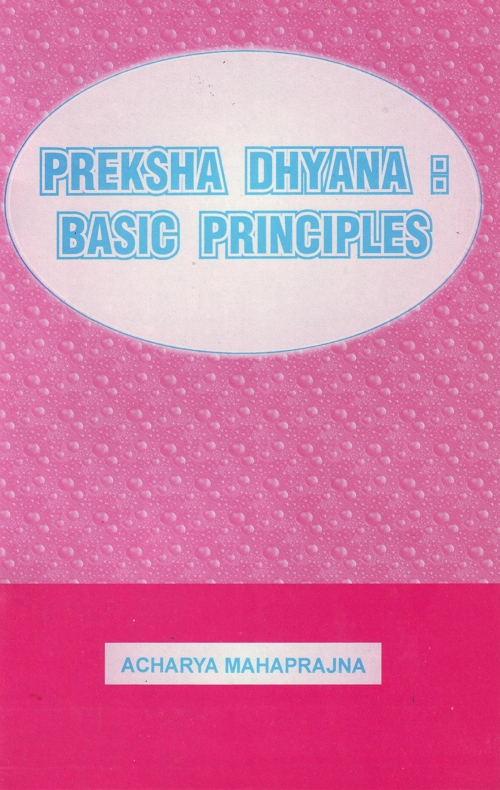
In publishing this booklet, it is hoped to bring to the reader, in simple language, some of the truths, already known to the ancient philosophies, and now known to modern science. Age of Tension What is Preksha-dhyana Benefits of Preksha-dhyana No Theological Dogma Review of Results
Preksha Dhyana: Contemplation And Auto-Suggestion
Posted on: 15.08.2008
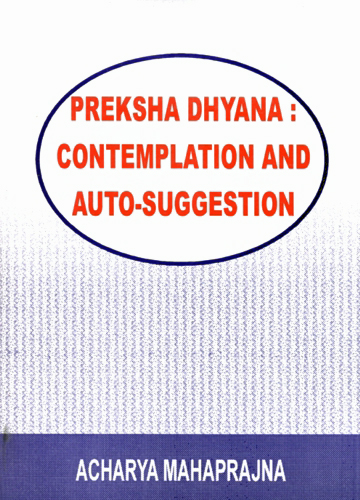
The objective of meditation is not to acquire physical goodness alone, but to acquire total psychical goodness by eradicating all evil from one's thoughts, speech and action. It is a "process of remedying inner incompleteness and reducing inner discord" as aptly stated by William James.
Preksha Dhyana: Perception Of Body
Posted on: 15.08.2008
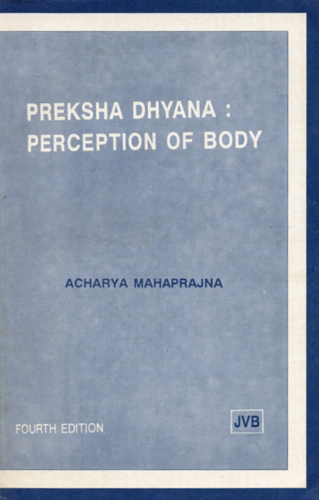
Our series on "Science of Living" includes tracts on various facets of prekṣā dhyāna. In the present one, the reader will find an elaborate discussion on "Śarīra-prekṣā" (perception of body). One could never reach the spiritual self without properly understanding the significance of the subtle vital energy flowing in the body, or the mysteries necessary first to become acquainted with the body as a...
Preksha Dhyana: Perception Of Breathing
Posted on: 15.08.2008

Our series on "Science of Living" includes tracts on various facets of prekṣā dhyāna. In the present one, the reader will find an elaborate discussion on śvāsa- prekṣā (perception of breathing). It goes without saying that breathing and vital energy (prāna) are the prime factors of our life, and hence the first step to unlock the latent energies within us would be to develop the prāna through...
Preksha Dhyana: Perception Of Psychic Centres
Posted on: 15.08.2008
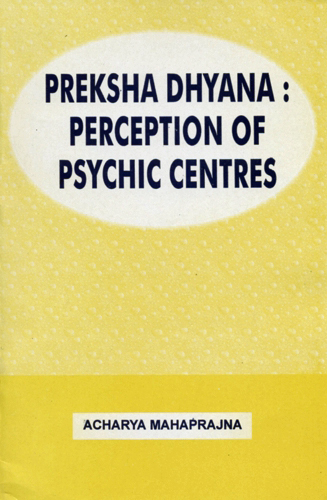
Our series on "Science of Living" includes tracts on various facets of preksā-dhyāna. In this booklet perception of psychic centres is discussed in details. Every man wishes to develop his personality and become a good man. But the question is - What is the process by which one can develop an integrated personality? The answer is - perception of psychic centres. It is a process of harmonizing one's endocrine...
Preksha Dhyana: Perception Of Psychic Colours
Posted on: 15.08.2008
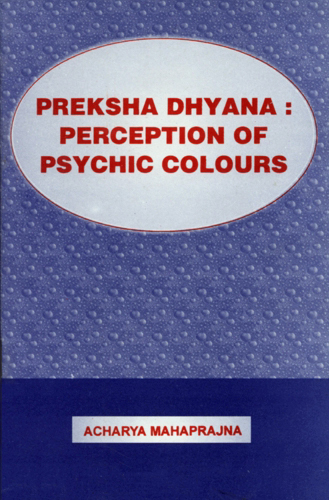
Our series of "Science of Living" includes tracts on various facets of preksā-dhyāna. In this booklet, perception of psychic colours (leśyā-dhyāna) As discussed in details. In the previous booklet, we have discussed the technique of'perception of psychic centres' (chaitanya-kendra-preksā). We have already seen that perception of psychic centres is a process of harmonizing one's endocrine system and...
Preksha Dhyana: Self-Awareness By Relaxation
Posted on: 15.08.2008

In this booklet, we have extensive discussion regarding Kāyotsarg i.e. total relaxation of the body accompanied by full awareness of the real self. What is relaxation? How does it differ from meditation? Can relaxation become meditation? What is the raison d'etre of relaxation? What benefits could be derived from relaxation? It is necessary to know the answers to these questions both with a scientific and...
Preksha Dhyana: Therapeutic Thinking
Posted on: 15.08.2008
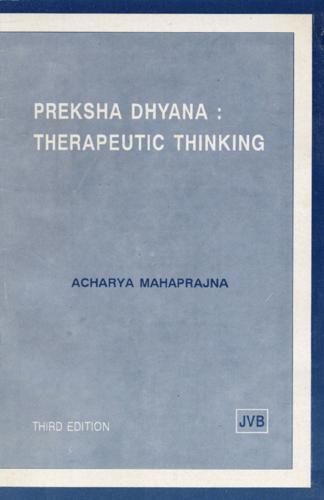
In publishing this booklet, it is hoped to bring to the reader, in simple language, some of the truths, already known to the ancient philosophies, and now known to modern science. Age of Tension In this age of techonology, industrialisation and over-urbanisation, we are constantly subjected to tremendous stresses and tensions. These, in turn, produce psychosomatic diseases like hypertension, insommia and...
Prekshadhyan - An Introduction
Posted on: 15.08.2008
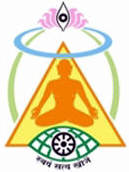
There is a profound relationship between an individual and society, like that between a drop and a ocean. The drop and the ocean like the individual and the world cannot be separated and therefore they cannot be viewed in isolation. Two Sanskrit words Pind and Brahmand are very well known. Whatever is in the embryo is in the universe and whatever is in the universe is in the embryo. According to the philosophy...
Techniques of Prekshadhyan
Posted on: 15.08.2008
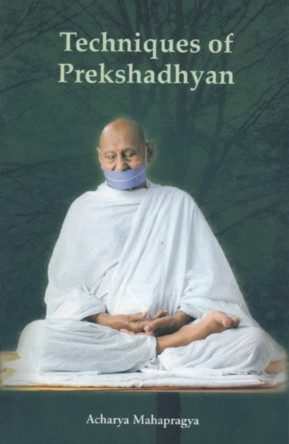
On the occasion of "Maryada Mahotsava-2010', Acharya Shri Mahapragya had a long stay at Sridungargarh. Programme of the Maryada concluded blissfully and with dignity on February 07,2010 (the day one of Phalgun Krishna). As usual, after having my breakfast, I was in auspicious presence of Acharya Shri. A lot of Samanis were already present. With great compassion, his holiness Acharya Pravar advised "today you...
The Art Of Positive Thinking
Posted on: 15.08.2008
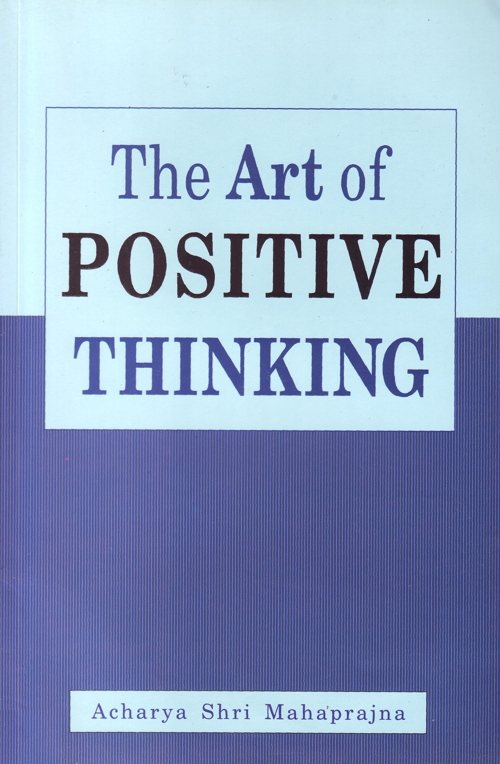
The present book is devoted to a detailed discussion of the following three topics: ►The Art of Thinking. ►Principles Governing a Change of Heart.►Freedom from Fear. Constructive thinking helps in bettering social and human relations and the path of development and progress is cleared thereby. Negative feelings create bitterness in social and human relations, thus obstructing the path of progress.
The Axioms Of Non-Absolutism
Posted on: 15.08.2008

The Axioms of Non-absolutism
The Mirror Of The Self
Posted on: 15.08.2008
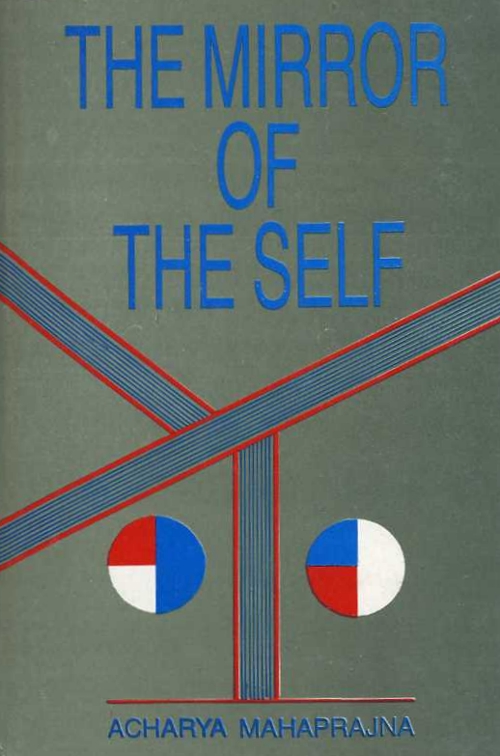
It is fascinating to observe how Sri Acharya Mahaprajna's most thought-provoking and breath-lakingly lucid books come into being. At the appointed hour, a lean tall man with a calm, smiling face enters the hall where the shivrarthis are gathered to practise dhyana. After initiating them into the precise mode and conduct of the day's meditation, he takes up a pad and jots down a few points - an outline of the...
The Mysteries Of Mind
Posted on: 15.08.2008
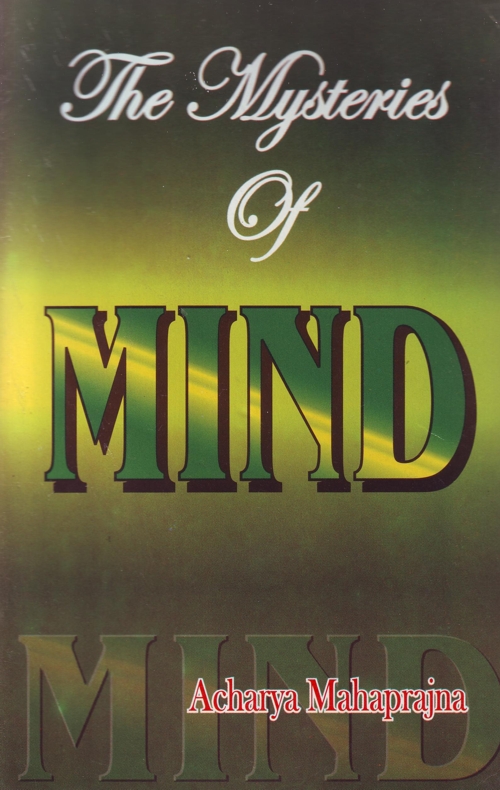
It takes a long time for the seed to grow into a tree. If it did not sprout, we will be deprived of the benefits we receive from the tree. We get flowers, leaves, fruits, shade and fuel only when the seed has sprouted and grown into a tree. Consciousness also has to perform a long journey before it can attain its highest development. If it remained dormant, we shall not be able to receive from it that which we...
The Quest For Truth
Posted on: 15.08.2008
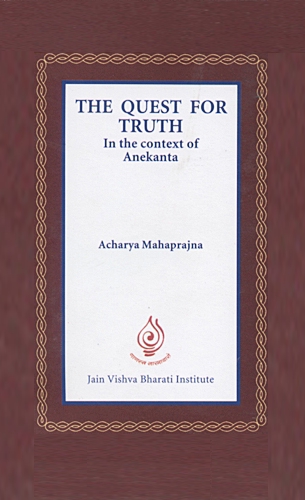
So far, all quests for truth have remained quests for the methods to get to truth. No goal can be accessed without first identifying the method with which to do so. Truth is a goal, knowledge, the method. In this book I have tried to evaluate some problems on the anvil of anekanta. This holistic perspective is a significant tool for problem solving. The need is to understand the efficacy of this tool...
Thought At Sunrise
Posted on: 15.08.2008

In comparision to thoughts, I have greater faith in thoughtlessness. Thoughts are born only when I want to think. If do not wish it then my thoughts remain attached to my thoughtless state. On the 1st of January 1998, Sadhvi Vishrut Vibha suggested that if I write a thought a day, it would be very useful. I accepted her animated suggestion. Everyday I kept dictating a few lines to her. Professor (Dr.) Dayanand...
Thus Spoke Mahapragya - Vol.1
Posted on: 15.08.2008
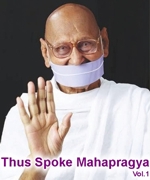
Rakesh Kumar Jain works as a Project Manager in a multinational company. “Thus Spoke Mahapragya - Vol.1” is his first book translated from Hindi to English, a tribute to Acharya Mahapragyaji with the intention to spread his teachings and thought processes to a wider audience across the globe.
Towards Inner Harmony
Posted on: 15.08.2008

Man has three weaknesses - cruelty, inequality, intolerance. There are three ways to rectify these - compassion, equality, control of strong emotions. In other words: Let cruelty die and compassion awake! Let inequality give way to equality! Let frenzy cease and tolerance flower! That is the theme of Towards Inner Harmony. Being leads to becoming and meditation is the only means there to.
Training In Nonviolence - Theory & Practice
Posted on: 15.08.2008
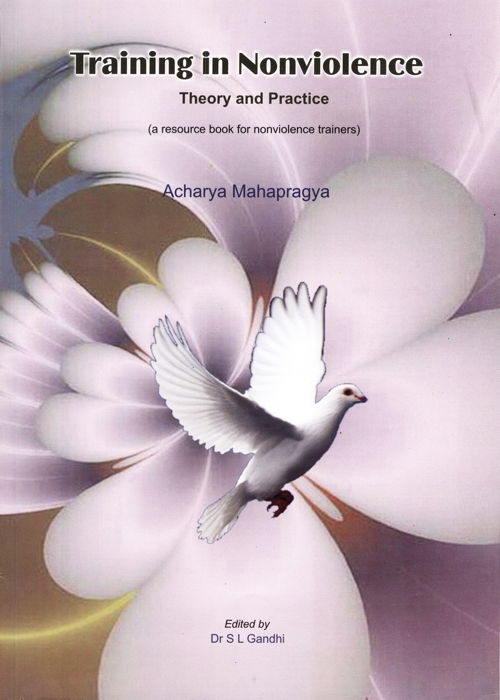
Mahavira proclaimed a profound truth for all times to come when he said: “One who neglects or disregards the existence of earth, air, fire, water and vegetation disregards his own existence which is entwined with them”. Jain cosmology recognizes the fundamental natural phenomenon of symbiosis of mutual dependence, which forms the basis of the modern-day science of ecology. It is relevant to recall that the...
Truth Of Life
Posted on: 15.08.2008

Life is a great book. Many commentaries have been written on the truth of life in the past and continue to be written. And it is expected that this process will go on. The gross body, which is the visible part, is one aspect of life. This is a conglomeration of skin, flesh and bones. The other aspect of life is awareness, which is a part of ultimate reality. We are more concerned and attached with our gross...
Why Meditate?
Posted on: 15.08.2008
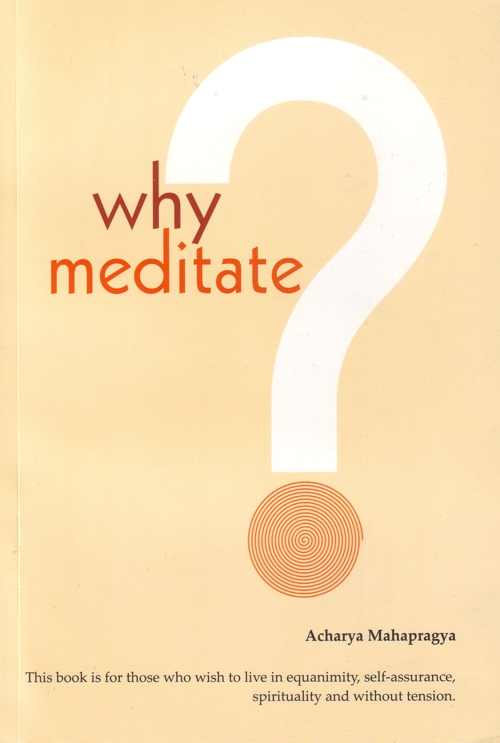
Preksha Dhyan is a practice that can lend momentum to the progress towards spirituality. This has been proven with practice. In other words there is no need for any verification. The need is only to understand it in a holistic manner. Why should one meditate? I have written elaborately on this in my book called Sambodhi. A few verses from it would be in place here... This book is a compilation of ten lectures...